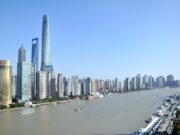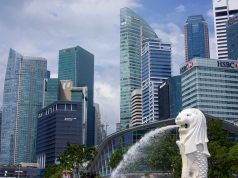Schroders Strategist Sean Markowicz: What does Stagflation Mean for Your Equity Portfolio?
May 2022 – This is an expert commentary on impact of stagflation on equity portfolio – What does Stagflation Mean for Your Equity Portfolio? by Sean Markowicz, who is the Strategist (Strategic Research Group) at Schroders.
 Schroders is a global active asset manager managing more than £574.4 billion (€641.7 billion / $785.1 billion 31/12/20) assets and managed locally by 42 investment teams worldwide. As a global active asset manager, the way we direct capital not only shapes the financial returns we achieve for our clients but also the impact that the companies in which we invest on their behalf might have on society.
Schroders is a global active asset manager managing more than £574.4 billion (€641.7 billion / $785.1 billion 31/12/20) assets and managed locally by 42 investment teams worldwide. As a global active asset manager, the way we direct capital not only shapes the financial returns we achieve for our clients but also the impact that the companies in which we invest on their behalf might have on society.
What does Stagflation mean for your Equity Portfolio?

Sean Markowicz: The Russia-Ukraine conflict has increased the risk of “stagflation” – where slowing economic growth combines with accelerating inflation. Global equities tend to suffer in this environment, as companies combat simultaneous falling revenues and rising costs, which squeezes profit margins.
However, this does not mean all sectors have to suffer. Some stocks will be more insulated than others given their defensive properties and/or positive correlation to inflation. We think a flexible approach to equity investing can take advantage of these performance differentials and potentially minimise significant losses.
Defensive stocks look like a clear winner

Stagflation tends to favour defensive companies whose products and services are essential to people’s everyday lives. This means their share prices tend to hold up better when the economy slows.
For example, whether inflation is high or not, people still need to purchase food, pay their electricity bills and rent. However, they may prefer to hold off on buying “cyclical” items such as a new car or iPhone until prices are lower. In quantitative terms, defensive sectors have a market beta of less than 1 (meaning they outperform when the index falls), whereas cyclical sectors have a market beta of greater than 1 (they underperform when the index falls).
This is illustrated in the table below, which displays the average historical return of 11 global economic sectors versus the MSCI World Index in stagflation environments.
Average Returns of 11 Global Economic Sectors vs MSCI World Index in stagflation environments

The best performing sectors have typically been defensives such as utilities (+16%), consumer staples (+14.2%) and real estate (+11.8%). In contrast, cyclicals such as IT (-6.7%), industrials (-3.3%) and financials (-0.5%) have been some of the worst performers.
Unlike their cyclical peers, however, energy stocks (+8.4%) have tended to outperform in stagflation environments. This makes sense as the revenues of energy stocks are naturally tied to energy prices, a key component of inflation indices. By definition, they should perform well when inflation rises.
How do different equity regions stack up?
Based on current sector weights only, the UK and Europe seem to offer the most protection in a stagflation scenario (see chart below).
For example, around 50% of the MSCI UK Index is made up of energy and defensive stocks, while the equivalent figure for Europe is 36%. Meanwhile, the US and Japan are significantly overweight sectors that would be expected to underperform – such as IT and consumer discretionary respectively (not shown on chart).
However, the UK represents only 4% of the total global equity market capitalisation, so a small overweight may not actually be enough to minimise downside risks. On the other hand, Europe is a much larger, investable market (11% of the global index) and may therefore offer more leeway to implement a tactical view.
Defensive Stocks by Region

What does this mean for equity investing?
Let’s suppose for a moment that historical returns during stagflation periods were repeated and mapped onto current regional sector weights.
In this scenario, UK and European equities would be expected to outperform a global market-cap weighted portfolio by 4% and 1% per year, respectively. In contrast, EM equities would underperform by 0.6%, while both the US and Japan would underperform by 0.5%.
Of course, there is no guarantee this would happen and other macroeconomic factors such as the level of interest rates and the strength of the US dollar also play their part. Nevertheless, tactically adjusting your regional allocation may shield your portfolio if the global economy slips into stagflation. Investors with the additional flexibility to invest across different sectors and companies – as well as regions – may be even better off.
This is an expert commentary on ESG investment opportunities by Sean Markowicz, who is the Strategist (Strategic Research Group) at Schroders.
Important Information
This document is intended to be for information purposes only and it is not intended as promotional material in any respect nor is it to be construed as any solicitation and offering to buy or sell any investment products. The views and opinions contained herein are those of the author(s), and do not necessarily represent views expressed or reflected in other Schroders communications, strategies or funds. The material is not intended to provide, and should not be relied on for investment advice or recommendation. Any security(ies) mentioned above is for illustrative purpose only, not a recommendation to invest or divest. Opinions stated are valid as of the date of this document and are subject to change without notice. Information herein and information from third party are believed to be reliable, but Schroder Investment Management (Hong Kong) Limited does not warrant its completeness or accuracy.
Investment involves risks. Past performance and any forecasts are not necessarily a guide to future or likely performance. You should remember that the value of investments can go down as well as up and is not guaranteed. You may not get back the full amount invested. Derivatives carry a high degree of risk. Exchange rate changes may cause the value of the overseas investments to rise or fall. If investment returns are not denominated in HKD/USD, US/HK dollar-based investors are exposed to exchange rate fluctuations. Please refer to the relevant offering document including the risk factors for further details.
This material has not been reviewed by the SFC. Issued by Schroder Investment Management (Hong Kong) Limited.
Schroder Investment Management (Hong Kong) Limited Level 33, Two Pacific Place, 88 Queensway, Hong Kong www.schroders.com.hk
About Schroders
As a global active asset manager, the way we direct capital not only shapes the financial returns we achieve for our clients but also the impact that the companies in which we invest on their behalf might have on society. The relationship between these two outcomes has rapidly evolved as we see a fundamental shift in how companies are viewed and valued. Understanding the impact that they can have on society and the planet is crucial in assessing their ability to deliver risk-adjusted profits.
Our ongoing success is built on a history of experience and expertise, whereby we partner with our clients to construct innovative products and solutions across our five business areas consisting of Private Assets & Alternatives, Solutions, Mutual Funds, Institutional and Wealth Management and invest in a wide range of assets and geographies. By combining our commitment to active management and focus on sustainability, our strategic capabilities are designed to deliver positive outcomes for our clients.
We are responsible for £574.4 billion (€641.7 billion/$785.1 billion 31/12/20) assets of our clients, managed locally by 42 investment teams worldwide. As a global business with over 5,500 talented staff across 35 locations, we are able to stay close to our clients and understand their needs. We have over 200 years of experience in investment and innovation.
Visit: www.schroders.com.hk
Sign Up / Register
Caproasia Users
- Manage $20 million to $3 billion of assets
- Invest $3 million to $300 million
- Advise institutions, billionaires, UHNWs & HNWs
Caproasia Platforms | 11,000 Investors & Advisors
- Caproasia.com
- Caproasia Access
- Caproasia Events
- The Financial Centre | Find Services
- Membership
- Family Office Circle
- Professional Investor Circle
- Investor Relations Network
Monthly Roundtable & Networking
Family Office Programs
The 2025 Investment Day
- March - Hong Kong
- March - Singapore
- July - Hong Kong
- July - Singapore
- Sept- Hong Kong
- Sept - Singapore
- Oct- Hong Kong
- Nov - Singapore
- Visit: The Investment Day | Register: Click here
Caproasia Summits
- The Institutional Investor Summit
- The Investment / Alternatives Summit
- The Private Wealth Summit
- The Family Office Summit
- The CEO & Entrepreneur Summit
- The Capital Markets Summit
- The ESG / Sustainable Investment Summit



























